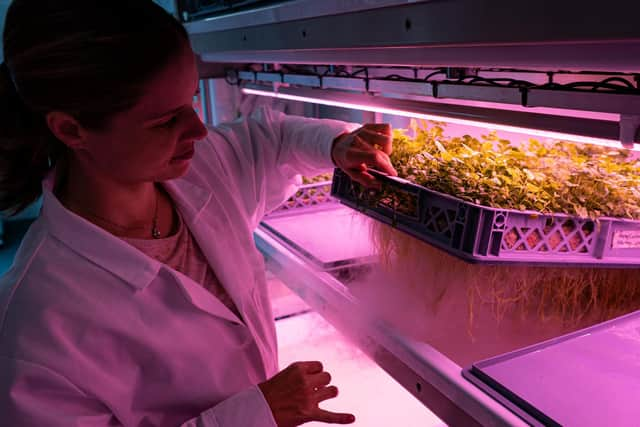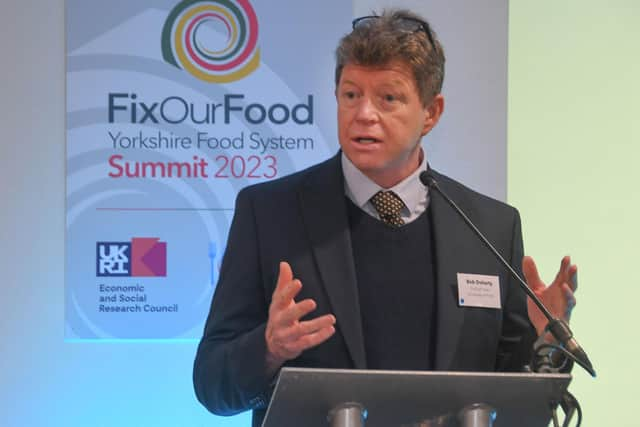How Yorkshire Fix Our Food scheme is working to improve human health and health of planet
There are two strands to the Fix Our Food scheme, anchored at the University of York – to improve human health and to boost the health of the planet.
Since it began in 2021, the programme has seen the development of a number of interventions designed to champion “healthy people, thriving businesses and a flourishing planet”. Research work has then taken place to asses the impact of such measures.
Advertisement
Hide AdAdvertisement
Hide AdProfessor Bob Doherty, Dean of the School for Business and Society at the University of York, is heading up the programme, one of four research consortia funded by the £47.5m Transforming UK Food System Strategic Priorities Fund.


“We are trying to create innovative, regenerative practice and amplify it and scale it up across Yorkshire,” he says. “The government realised problems in the food system needed tackling and that new research was needed around interventions to make the food system less harmful on both human and planetary health.”
The programme has recently launched a Fix Our Food commission to bring together regenerative food projects in Yorkshire in both rural and urban areas. It will work to action change in food policy, remodel supply chains and public food procurement, improve dietary health, particularly in young people, and support innovation in regenerative practices.
The programme already has a number of strands, working with farmers, schools, businesses and policymakers. One of its focuses is to assess the potential of regenerative farming, an approach which seeks to improve soil health, water quality and biodiversity.
Advertisement
Hide AdAdvertisement
Hide AdFix Our Food is looking at examples of regenerative farming in Yorkshire and beyond and the potential contribution to tackling climate change if the techniques are scaled up nationally. “We are collecting the evidence,” Professor Doherty says. “Practice has been ahead of science...And now we are trying to demonstrate the impact of these practices.”


The programme is also working with schools to address a disconnect between food and farming and there are hopes to get more young people interested in a regenerative food system. A network has been developed to support primary schools to provide healthy school meals to all children, created from fresh, sustainable and locally-sourced produce.
"We take the kids on farm tours, we take them to regenerative farms, we get schools procuring from regenerative farmers, getting produce from them for the school meals,” Professor Doherty says. “We’re increasing interest in food to get young people more passionate about a regenerative food system.”
Two years ago, a vertical, community farm was also developed under the Fix Our Food banner, in a container park in York city centre. Grow It York sees crops grown indoors without soil, with less water and without the need for pesticides and it provides produce to surrounding businesses. The farm was built to investigate how vertical farming can play a role in creating change within the food system, while benefiting health, the environment and the economy.
Advertisement
Hide AdAdvertisement
Hide AdResearch is also taking place into how hybrid businesses that prioritise social and environmental benefit – not just profit - can be encouraged. "The businesses we’re working with are increasingly becoming more sustainable,” says Professor Doherty. “They’re part of this development of a regenerative food system by reducing their own environmental impacts.”
Another strand to the Fix Our Food programme is policy change. The scheme is identifying the policies and governance structures needed to support regenerative transformation. Professor Doherty says: “We’re working with North Yorkshire Council at the moment, helping them to develop their first food strategy...It’s a strategy for public health, as well as farming, as well as the environment, bringing it all together. That will be launched next year, in 2024.
"So we’re working on lots of different scales – we’re working with schools, local businesses, farmers and also local authorities and City Regions as well. iI’s all about making the Yorkshire food system more regenerative and more sustainable.”
To find out more, visit fixourfood.org
